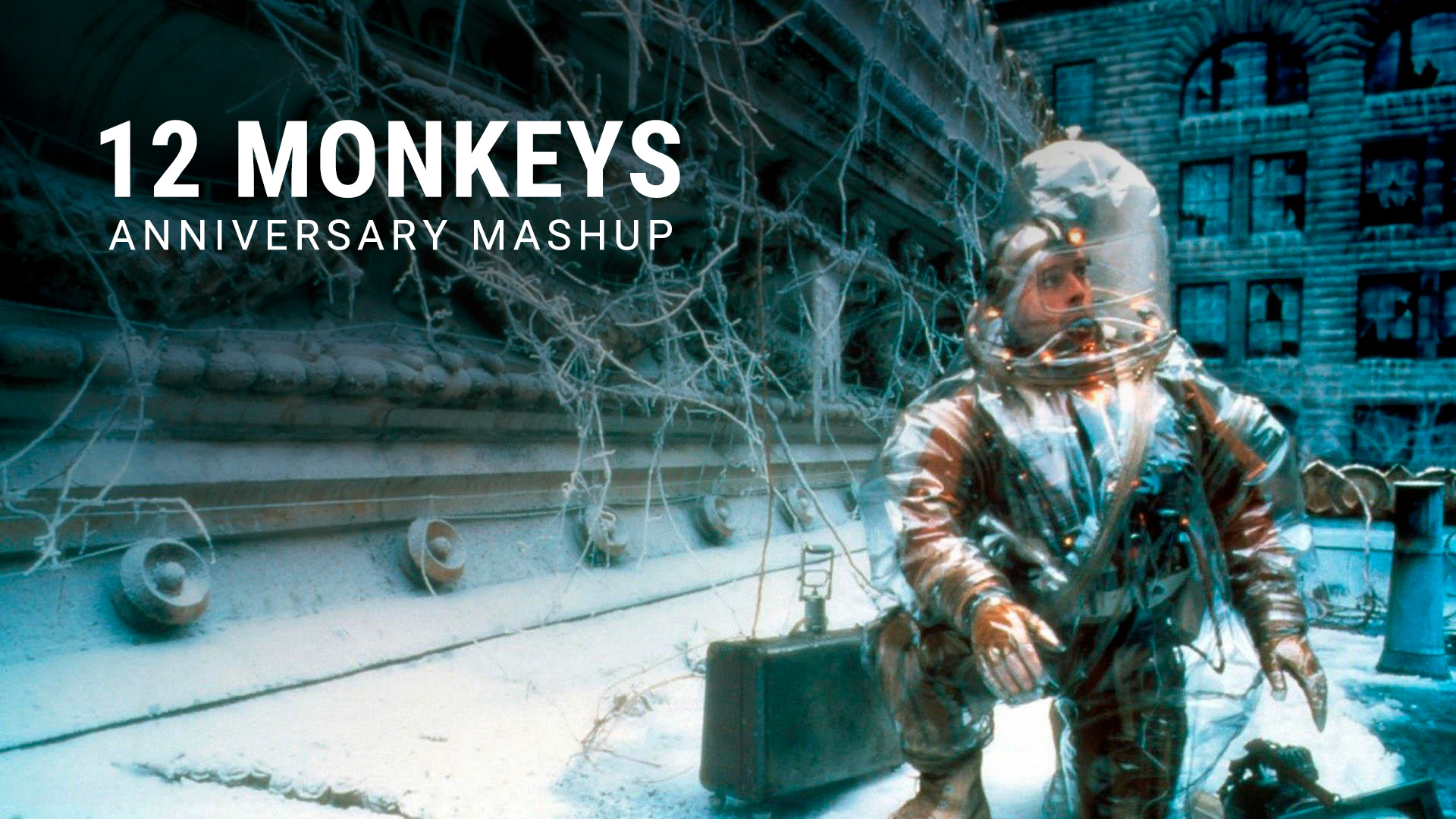12 Monkeys (1995)

“12 Monkeys,” directed by Terry Gilliam and released in 1995, is a groundbreaking science fiction thriller that deftly weaves together themes of time travel, mental illness, and the human condition. Based on a screenplay by David and Janet Peoples, the film draws inspiration from Chris Marker’s short film “La Jetée,” but expands the narrative into a complex and thought-provoking exploration of dystopia and memory. Featuring an outstanding cast that includes Bruce Willis, Madeleine Stowe, Brad Pitt, and Christopher Plummer, “12 Monkeys” stands out as a cinematic achievement that continues to resonate with audiences today.
The film is set in a post-apocalyptic future where a deadly virus has wiped out the majority of humanity, forcing survivors to live underground. Bruce Willis stars as James Cole, a convict selected to participate in a time-travel experiment aimed at uncovering the origins of the virus. Cole’s journey takes him back to the year 1990, where he struggles to adjust to a world that feels alien to him. From the outset, Gilliam establishes a disorienting atmosphere that mirrors Cole’s own confusion as he grapples with his purpose and the fragility of his reality.
One of the most compelling aspects of “12 Monkeys” is its exploration of mental illness and perception of reality. As Cole attempts to navigate the complexities of his mission, he is plagued by vivid memories and hallucinations, blurring the lines between past, present, and future. Willis delivers a powerful performance, capturing Cole’s vulnerability and determination as he faces both external and internal conflicts. His portrayal evokes sympathy, highlighting the human capacity for resilience in the face of overwhelming despair.
Madeleine Stowe plays Dr. Kathryn Railly, a psychiatrist who becomes entangled in Cole’s chaotic journey. Stowe’s character represents a voice of reason amidst the chaos, and her evolving relationship with Cole adds depth to the narrative. Initially skeptical of Cole’s claims about time travel and the future, Dr. Railly gradually begins to understand the gravity of his mission. Their interactions serve as a catalyst for exploring themes of trust, love, and the search for meaning in a world that feels increasingly fragmented.
Brad Pitt’s portrayal of Jeffrey Goines, a charismatic and unpredictable mental patient, is a standout performance that earned him an Academy Award nomination for Best Supporting Actor. Goines embodies the chaos and unpredictability of the film’s world, often providing both comic relief and unsettling insights into the nature of sanity. His erratic behavior contrasts sharply with Cole’s more focused mission, yet Goines also serves as a reminder of the consequences of societal collapse and the impact of the virus on humanity. Pitt’s performance is both captivating and unnerving, adding layers to the film’s exploration of madness and control.

The film’s narrative structure is intricate, employing non-linear storytelling that mirrors the disorientation experienced by the characters. The jumps between timelines create a sense of urgency, as Cole races against time to gather information about the virus and its origins. Gilliam’s direction masterfully maintains tension, blending moments of suspense with introspective character development. The visual style, characterized by striking cinematography and surreal imagery, enhances the film’s atmosphere, immersing viewers in a world on the brink of annihilation.

The themes of fate and free will are central to “12 Monkeys.” As Cole learns more about the virus and its origins, he grapples with questions about predestination and the ability to change the future. The film suggests that while certain events may be inevitable, the choices made by individuals still hold weight in shaping reality. This philosophical exploration invites viewers to reflect on the nature of time and the impact of human actions on the course of history.
Gilliam’s use of dystopian elements adds to the film’s emotional resonance. The portrayal of a society stripped of its humanity, where fear and despair reign, serves as a cautionary tale about the consequences of neglecting the social fabric. The underground communities, filled with individuals grappling with trauma and loss, highlight the human cost of catastrophe and the struggle for survival in the face of overwhelming odds.

The climax of “12 Monkeys” is both shocking and thought-provoking, as it challenges the viewer’s understanding of time and reality. The final revelations force Cole, Dr. Railly, and the audience to confront the implications of their choices, leaving lingering questions about the nature of destiny and the possibility of redemption. The film concludes with a poignant sense of ambiguity, inviting viewers to reflect on the cyclical nature of history and the resilience of the human spirit.

In summary, “12 Monkeys” is a cinematic masterpiece that transcends the conventions of the science fiction genre. Directed by Terry Gilliam, the film is a compelling exploration of time travel, mental illness, and the complexities of human existence. With exceptional performances from its cast, particularly Bruce Willis, Madeleine Stowe, and Brad Pitt, “12 Monkeys” captivates audiences through its intricate narrative and philosophical depth. The film serves as a powerful reminder of the fragility of civilization and the enduring capacity for hope, even in the face of despair. Its exploration of fate, free will, and the nature of reality ensures that “12 Monkeys” remains a relevant and thought-provoking work that continues to resonate with viewers decades after its release.
Suggested videos for you:
Suggested videos for you:











